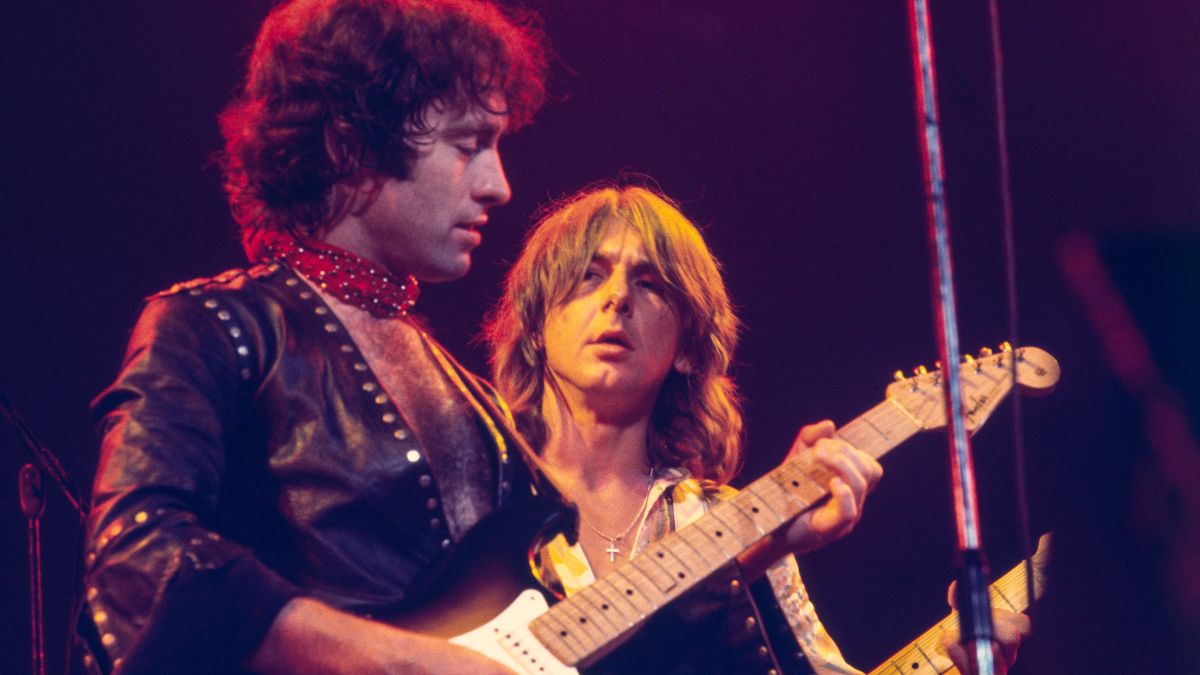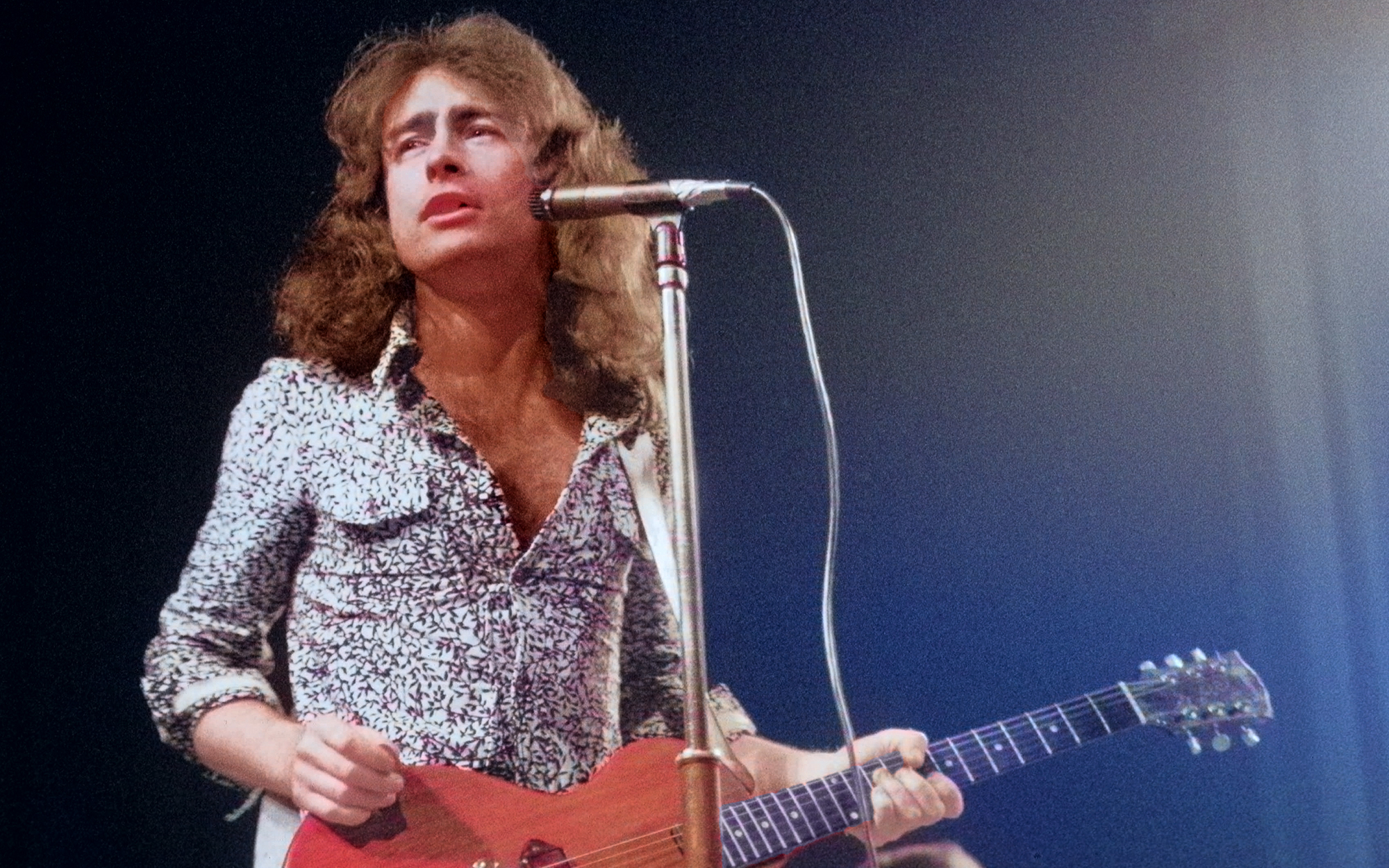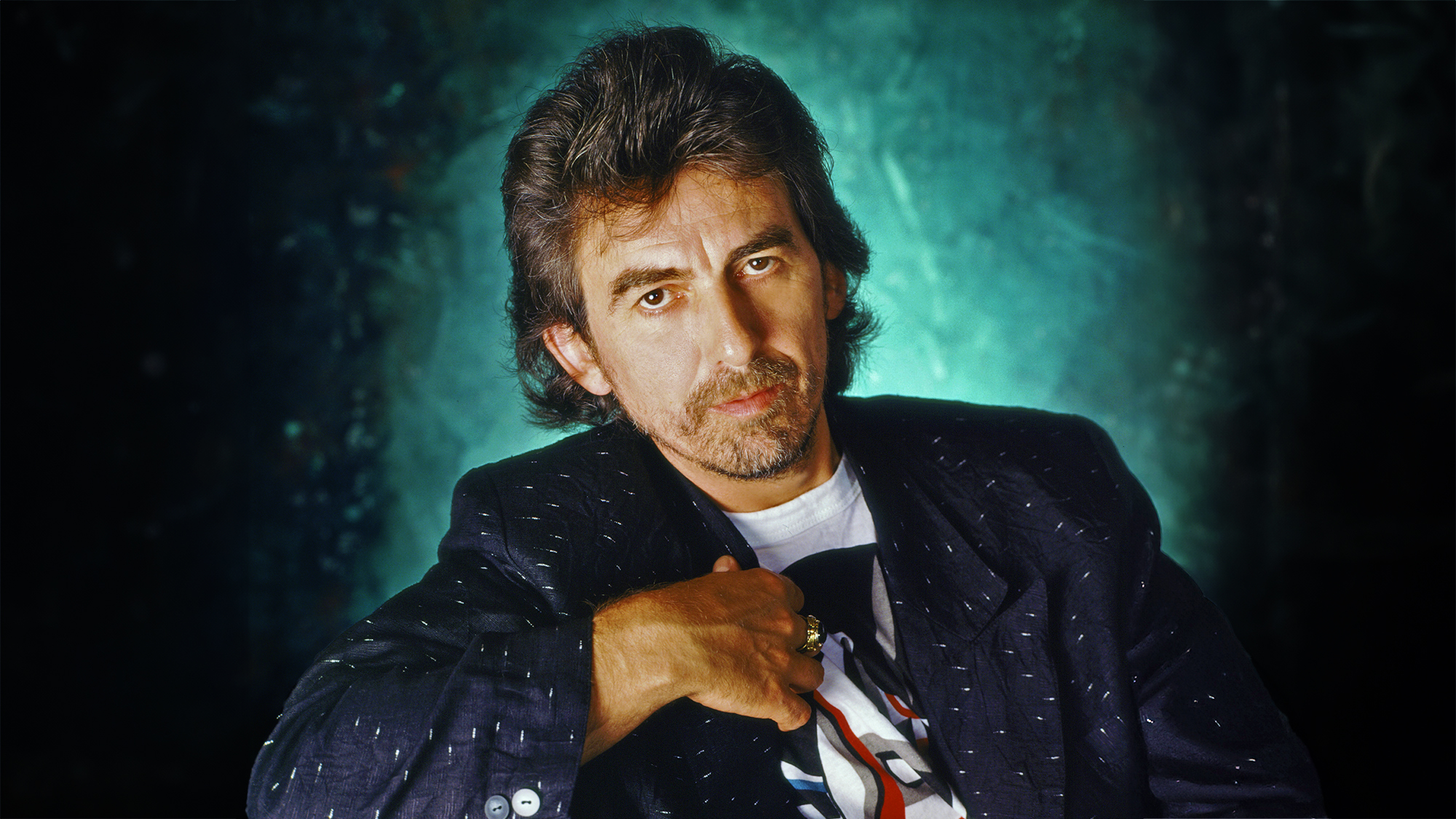“I’ve heard it’s responsible for a whole generation being conceived.” Paul Rodgers on Bad Company’s rock anthem that took years — and an entirely new band — to complete
Patience — and a single well-played guitar chord — turned out to be a virtue for one of the biggest hits in the group's catalog

Sometimes songs are written in a heartbeat; other times, they’re labored over or put on the shelf until the right moment comes along.
Paul Rodgers learned the poignancy of the latter the hard way.
One of Bad Company’s biggest hits, “Feel Like Makin’ Love,” actually began life as a cut for Free, the British hard rock group Rodgers fronted previously. But it took the genius of guitarist Mick Ralphs — Rodgers’ future Bad Company bandmate — to finally bring it to life, not months but years later.
“I was staying at this camp in California when I started to come up with the lyrics and music to "Feel Like Makin’ Love,’” Rodgers tells Classic Rock as he explains the song's creation. “It was an amazing place to be.”
He was 19 at the time, busy on the road with Free. Their foundations, though, were crumbling, exemplified by their two breakups in the early ‘70s. And so, Rodgers was forced to keep the song on “the back burner” until Bad Company formed.
That band, completed by Ralphs, Rodgers' Free bandmate Simon Kirke on drums, and King Crimson alumnus Boz Burrell on bass, was adopted by Led Zeppelin manager Peter Grant. The band was successful from the off, with their self-titled debut album breaking into the top five in the U.K. charts.
Yet, the seed of an idea that would eventually grow into "Feel Like Makin' Love" had yet to be pulled from the dark and dusted off.
All the latest guitar news, interviews, lessons, reviews, deals and more, direct to your inbox!
Its time came in 1974, while recording their second album, Straight Shooter on Ronnie Lane’s mobile studio at Clearwell Castle in Gloucestershire.
“I played it to Mick, and I knew it still needed something,” Rodgers recalls.
In response, Ralphs turned up his guitar — most likely his Gibson Les Paul — and put some heft into the chord that leads into the chorus
“I said: ‘Yeah! That’s it.’ It’s an example of how you can have an idea floating around that you haven’t finished, then you’re with the right musician at the right time, and it just takes off.”

The simple change was all it needed, and Rodgers feels that Ralphs’ contributions took it to a whole new level. It needn’t be overtly complex.
“The thing that was nice about [the finished version] is that it goes from this very tender verse to these big, heavy chords and then comes back again,” he develops. “It gets raucous, but it’s a kinda controlled raucousness. The simplicity of it was the magic.
“I’ve always believed that most human beings go through the whole gamut of emotions from one day to the next – or even in the same hour,” he adds. “That song didn’t come from the head; somehow, it came from the heart.”
Which is exactly why it appealed to listeners. Rodgers suggests that, as love anthems go, it may be the most consequential one of the decade.
“I’ve heard it’s responsible for a whole generation being conceived,” he says with a laugh. “Although that could be an exaggeration.”
Indeed, that particular writing session bore plenty of fruit.
“We were writing furiously and getting on famously,” Rodgers recalls, noting the contrast with the tumult of Free. “‘Feel Like Makin’’ Love was just one of a batch of songs that we put down.
“The band loved it straight away; it was one of those natural sessions where everybody fell into it and felt the groove. We wanted to keep the vibe from the first album, keep it as natural as possible.”
The band loved it straight away; it was one of those natural sessions where everybody fell into it and felt the groove.”
— Paul Rodgers
Ralphs, who passed away aged 81 in June, has previously credited David Bowie with the formation of Bad Company. The glam rock icon wrote "All the Young Dudes" for his previous band, Mott the Hoople, causing a domino effect that put him on a collision course with Rodgers, who had notably rejected the chance to join Deep Purple.
Rodgers, meanwhile, gives Ralphs credit for coining the band' name. And though Ralphs may have drawn great influence from the work of Leslie West, Paul Rodgers has revealed what he learned about guitar playing from his former bandmate, as well as Jimmy Page.
A freelance writer with a penchant for music that gets weird, Phil is a regular contributor to Prog, Guitar World, and Total Guitar magazines and is especially keen on shining a light on unknown artists. Outside of the journalism realm, you can find him writing angular riffs in progressive metal band, Prognosis, in which he slings an 8-string Strandberg Boden Original, churning that low string through a variety of tunings. He's also a published author and is currently penning his debut novel which chucks fantasy, mythology and humanity into a great big melting pot.


